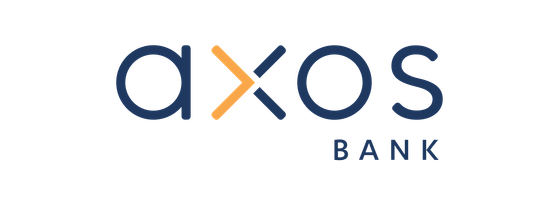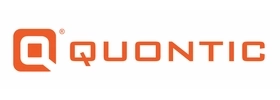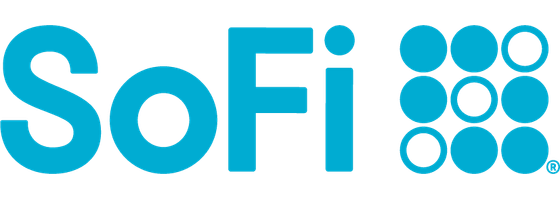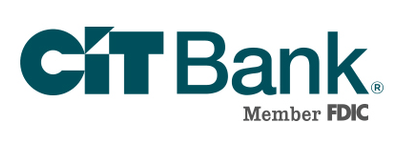Best High-Yield Checking Accounts for November 2024

Our evaluations and opinions are not influenced by our advertising relationships, but we may earn a commission from our partners’ links. This content is created by TIME Stamped, under TIME’s direction and produced in accordance with TIME’s editorial guidelines and overseen by TIME’s editorial staff. Learn more about it.
If you have cash in a checking account, there’s a good chance you are not earning any interest, even if you have a large balance. While some checking accounts pay little interest, a small group of accounts come with impressively high yields. While high-yield checking accounts usually fall short of high-yield savings, they can be a good option to earn more from your idle cash.
| Title | APY* | Min. deposit | Paper checks available | Monthly fee |
|---|---|---|---|---|
Axos Rewards Checking | Up to 3.30% | $0 | Yes | $0 |
Quontic High Interest Checking | 1.10% | $100 | Yes | $0 |
Upgrade Rewards Checking | Up to 2% cash back plus up to 4.41% APY with paired savings account | $0 | No | $0 |
Sofi Online Checking Account | 0.50% (though 4.20% can be earned on savings account balances) | $0 | Yes | $0 |
CIT eChecking | 0.25% with a balance of $25,000 or more; 0.10% with a balance of under $25,000 | $100 | No | $0 |
Consumers Credit Union Rewards Checking | Up to 5.00% | $5 | Yes | $0 |
First Tech Federal Credit Union Rewards Checking® | Rate of 3.75% APY up to $15,000; 0.05% $15,000.01+ | $10 | Yes | $0 |
Axos Rewards Checking Account is an unusual account offering up to 3.30% annual percentage yield (APY) for active customers. If you have an account with qualifying direct deposit, you start with 0.40% APY*, which is one of the better yields for checking accounts regardless of activity requirements.
You’ll have to jump through some hoops to get the top rate. You get a boost of 0.70% APY* for using the account’s debit card at least 10 times monthly for $3 or more. An Axos Self-Directed Investing account and Managed Investing account with a minimum of $2,500 per account increases your rate by 1% each. If you use an Axos Rewards Checking account to make a monthly loan payment to Axos, you get another 0.60%. You can get 3.30% APY on your checking when you add it all up.
Most people probably won’t get the entire 3.30% unless they’re all in on Axos, but even if you earn just 0.70% or 2.70% for pairing checking and investing, you’ll be outearning most other checking accounts on the market. Plus, there’s no minimum balance or recurring maintenance fees, so you’ll likely come out ahead if you use this as your main checking account.
If you make most purchases with a debit card anyway, qualifying for the top 1.10% APY interest rate from the Quontic High-Interest Checking Account is easy. Regardless of your balance and other activity, you can earn the 1.10% rate every month if you use the card for at least 10 debit card transactions of $10 or more.
The account has no monthly maintenance fees or minimum balance requirements, and you don’t need a regular direct deposit to earn 1.10% APY. If you have fewer than the 10 required debit transactions, your rate drops to 0.01%, which isn’t very impressive. However, if you use debit for your daily purchases, such as gas and groceries, you’ll get to 10 transactions before you know it.
The account also offers an impressive free ATM network, with over 90,000 partner ATMs supporting withdrawals with no surcharges or fees. Like most online banks, most customer needs are self-service through the online or mobile app. If that combination of features works for you, Quontic could be a good choice.
Upgrade Rewards Checking doesn’t pay interest on balances but rewards you in two ways if you receive at least $1,000 in monthly direct deposits. First, you can earn up to 2% cash back using your debit card in popular categories, including gas stations, drugstores, restaurants, streaming subscriptions, and cellphone service—and 1% on other purchases.
Second, when you have the Upgrade Rewards Checking alongside an Upgrade Premier Savings account and meet direct deposit requirements, you’ll earn an elevated 4.41% APY on your savings balance. With the cash back rewards and elevated savings account rate, you can earn more here than using most other checking and savings accounts from traditional banks.
With a SoFi Checking account, you can earn 0.50% APY*, and the only requirement is to have your monthly direct deposit from work come to the account. Savings account rates are also impressive with direct deposit, currently 4.50%*.
SoFi Checking has no minimum balance requirement and no monthly recurring fees. There are no account fees for typical use, including no overdraft or nonsufficient funds fees. It offers over 55,000 free ATMs through the Allpoint network, but it doesn’t reimburse fees other banks charge for ATM use.
The online account is simple to use. While not the top interest rate for checking, 0.50%* is pretty good, particularly without difficult-to-achieve activity requirements.
If you have at least $25,000 in your account, CIT Bank eChecking has an elevated 0.25% APY* with no activity requirements. Accounts with less than $25,000 earn 0.10%*, which is better than the average traditional bank but not great compared with other high-interest checking accounts.
The big perk is that high-balance accounts don’t have any debit card or direct deposit requirements to earn the best rate the bank offers. We also like CIT Bank for savings accounts and generally low fees across the board, so it’s worth checking out if you’re shopping for a checking account and typically keep at least $25,000 in one. Another plus is that CIT Bank doesn’t charge ATM fees and will reimburse you for up to $30 per month in ATM fees you pay to other banks.
Consumers Credit Union offers online banking to customers nationwide, and the Consumers Credit Union Rewards Checking is a standout choice. It has interest rates Up to 5.00% APY and needs no minimum balance or activity requirements to avoid maintenance fees. There’s a $5 donation requirement to join, and you must also keep $5 in a savings account to remain a member. But aside from those simple requirements, the account is easy to open and maintain.
All account holders can earn 3% APY on up to $10,000 if they opt for electronic statements, use their debit card at least 12 times per month, and make at least $500 in monthly deposits, such as direct deposit from an employer. With $500 in monthly debit card purchases, it goes up to 4% APY on balances up to $10,000. To earn the top 5% APY, you need to make at least $1,000 in monthly purchases. While that means you’ll need to be a very active user of the account to earn the best rates, it’s an easy threshold to reach for many banking customers.
First Tech Federal Credit Union offers the First Tech Federal Credit Union Rewards Checking in tandem with a rewards savings account. If you meet minimum requirements, you can earn a Rate of 3.75% APY up to $15,000; 0.05% $15,000.01+. Qualifying customers also get ATM rebates, additional cash back on eligible credit card purchases, and a cash back discount on eligible loans. What’s more, there are no monthly or recurring fees.
To qualify, you’ll need to make 20 monthly transactions worth at least $500 combined on a First Tech debit or credit card and receive at least $1,000 in monthly direct deposits. If you go all-in with First Tech for your checking and savings, you can earn significant interest. Anyone is eligible to join based on their employment or if they join a partner nonprofit during the account setup process.
To choose the best high-yield checking accounts, we looked at several factors, including interest rate, activity requirements, typical account fees, minimum balance requirements, ATM availability, and how the account fits in with other accounts offered by the bank.
When choosing an account, it’s important to consider your typical banking needs and activity to ensure you qualify for the best rates and won’t get stuck paying high fees.
Everyone’s banking needs are specific, so consider these features as you hunt for an interest-earning checking account.
The interest rate is a key differentiator if you want to earn interest from a checking account. APY helps you compare accounts with varying compounding schedules apples-to-apples. With APY you can make a more informed choice, understanding how much you’ll earn from your balance.
Many checking accounts require specific monthly activities to avoid monthly fees or to earn the best interest rates. Common activity rules focus on a minimum number of monthly debit card transactions, direct deposit into the account, or a minimum balance.
If you have to pay monthly fees to keep the account open, you’ll likely spend more on fees than you earn in interest. Finding an account with no monthly fees or minimum balance requirement to avoid fees is desirable for most banking customers.
If you ever need cash and bank online, an ATM is essential. Many banks partner with large networks, such as Allpoint or MoneyPass, to offer free ATMs to customers. Check out how many free ATMs are available and where you can find them when signing up for an account. The top accounts for ATMs don’t charge any ATM fees and reimburse you for fees charged by other ATMs.
If you regularly get paid in cash or prefer the convenience of in-person customer service, you may want to stick with a traditional brick-and-mortar bank with local branches. However, most people don’t need a branch and can easily handle their needs with direct deposit and online or mobile banking tools. For in-person banking, consider Chase, which has more than 4,700 branches nationwide
If being able to write paper checks matters to you, be sure to check whether the bank provides them—or permits you to buy them through an outside vendor. For example, CIT Bank does not provide or permit paper checks.
If you sign up for a high-yield checking account, ensure you do what’s required to earn the high yield. There’s little benefit to moving to an account paying a top rate if you don’t earn it.
If you like high-yield checking accounts, you may also like high-yield savings accounts. Most banks allow you to transfer funds back and forth between checking and savings accounts at the same bank instantly and allow free transfers to and from other connected bank accounts. If you can earn more from your savings account, keeping less cash in your checking could be helpful.
If you pay $20 in ATM fees every month or an occasional overdraft fee, you’ll likely pay your bank more than you’ll earn from a high-yield checking account. Take stock of how you use your accounts and consider switching to an account with low or no fees. For no-fee checking accounts, Chime is a great choice.
High-yield checking accounts are appealing, but they’re not your only option. You may prefer a low-fee checking account paired with a high-yield savings account to maintain an efficient personal finance setup.
To earn the most interest on your money, check out our list of the best high-yield savings accounts. Also, consider investing in a portfolio of exchange-traded funds (ETFs) or mutual funds to capture earnings from the investment markets, always remembering that investments come with a level of risk you don’t get with bank accounts.
A quick online search proves that most checking accounts offer no interest at all, and those that do usually pay extremely low interest rates. Moving to a high-interest checking account could be a savvy move if you tend to store thousands of dollars in your checking account.
Bank account interest rates can change at any time without notice. Many banks change their rates shortly after announcements by the Federal Reserve that it’s changing its target interest rate, though that’s not always the case.
Most high-yield checking accounts require you to be a legal resident of the United States with a valid Social Security or other tax identification number. They may also be limited to adults aged 18 or older.
In most cases savings accounts have higher interest rates than checking accounts. However, that’s not a set rule, and some high-yield checking accounts pay more than savings accounts.
Each bank publishes a rate schedule, which may include interest rate tiers. Depending on your bank’s rules, you could have all or part of your balance earn the best rate.
Many banks offer a lower default APY if you don’t meet activity requirements for the best interest rate. Check your bank’s requirements to ensure you qualify for the top APY.
The information presented here is created by TIME Stamped and overseen by TIME editorial staff. To learn more, see our About Us page.










